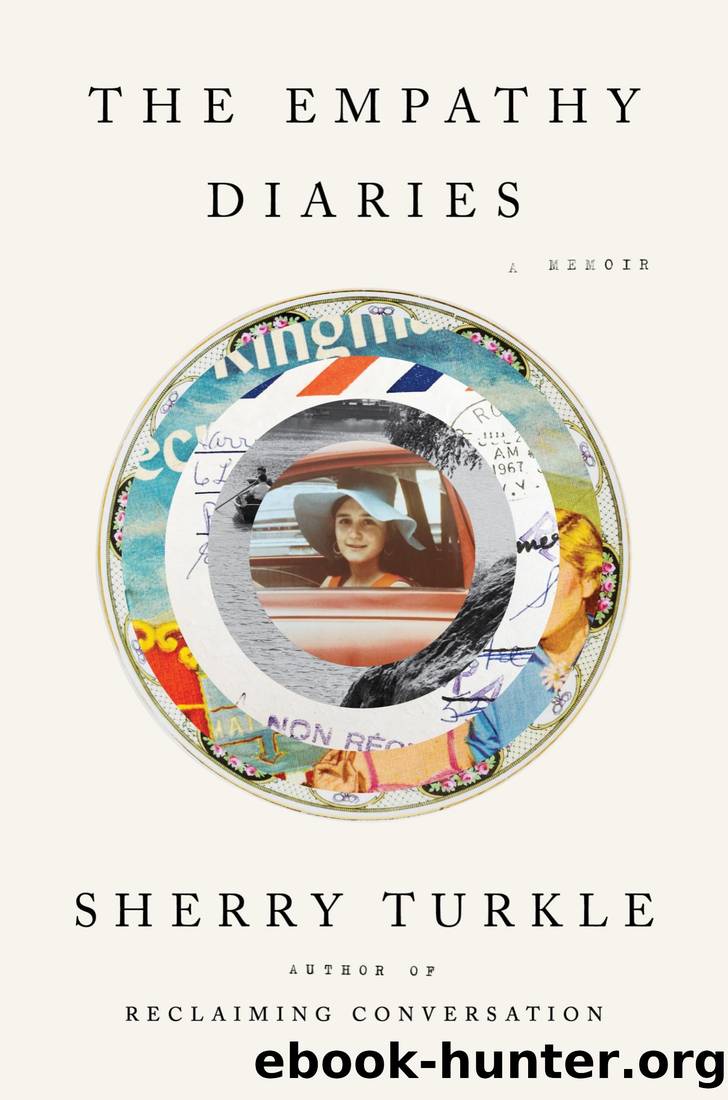The Empathy Diaries by Sherry Turkle

Author:Sherry Turkle [Turkle, Sherry]
Language: eng
Format: epub
Published: 2021-03-02T00:00:00+00:00
* * *
⢠⢠â¢
Catherine was generous in sharing the other members of her familyâher three siblings, her parentsâI think she, like Madame Mullender, understood that what I needed most was a sense of family. Catherineâs father, Robert Weill, a biologist, had a presence that loomed large. In 1939, he was named a professor at the University of Bordeaux. But he was fired in 1940 because of anti-Jewish laws. The family at first tried to live in a part of France that during the Vichy years was administered by the Italians, less hard on the Jews than the Germans were, but when the German authorities took over, the family obtained false papers and went into hidingâfive children, two parents, a grandmother, and a great-grandmother. After the war, which Catherineâs father spent in the French Resistance, the family returned to Talence, a Bordeaux suburb.
Catherineâs family had been torn out of their lives because they were Jews. But after the war, they did not have the options for a life as Jews that I had as an American. In postwar America, I grew up with the message that I could choose how to be Jewish. Minimal participation in organized Judaism would not make me less Jewish. My grandfatherâs religious practice consisted of eating the traditional foods that went with each holiday season. And on the eve of Yom Kippur, he listened to a recording of Jan Peerce, a great American operatic tenor of the 1940s, singing Kol Nidre, the prayer in which Jews ask for forgiveness for sins committed in the year that has just passed.
In France, the only synagogues were Orthodox. If you werenât Orthodox, there seemed to be no traditions of participation in Jewish life. Compared with me, Catherine operated in an atmosphere of all or nothing. Non-Orthodox Jews didnât do Seders or have Purim parties or compete with Christmas by making Hanukkah a big deal. They participated in Christmas as a French holiday and sometimes went to church as a social event.
When I told French people I had visited Drancy, where French Jews had been detained before being sent to Auschwitz, some told me that no such thing had happened. Or that they had never heard of such a thing. Some said I was perhaps making up this story to excuse my own country for its moral crimes in Vietnam.
But in the months after May 1968, at least in Paris, things were changing. A film by Marcel Ophuls, The Sorrow and the Pity, about collaboration and the Vichy years, would not be released for another year, but already it was much discussed. One of its central themes was that collaboration with the Nazis was made easier because France was riven by a deep strain of anti-Semitism. I went to meetings where students asked the most difficult questions about French complicity with the Nazis: Why was it still taboo to talk about what France had done to its Jews? Why were the French still telling inflated stories about the Resistance
Download
This site does not store any files on its server. We only index and link to content provided by other sites. Please contact the content providers to delete copyright contents if any and email us, we'll remove relevant links or contents immediately.
Spare by Prince Harry The Duke of Sussex(5153)
Machine Learning at Scale with H2O by Gregory Keys | David Whiting(4270)
Never by Ken Follett(3896)
Harry Potter and the Goblet Of Fire by J.K. Rowling(3821)
I Have Something to Say by John Bowe(3484)
Unfinished: A Memoir by Priyanka Chopra Jonas(3359)
Fairy Tale by Stephen King(3320)
Greenlights by Matthew McConaughey(3124)
The Man Who Died Twice by Richard Osman(3048)
Will by Will Smith(2883)
Think Again by Adam Grant(2443)
Rationality by Steven Pinker(2334)
Can't Hurt Me: Master Your Mind and Defy the Odds - Clean Edition by David Goggins(2294)
The Dark Hours by Michael Connelly(2285)
It Starts With Us (It Ends with Us #2) by Colleen Hoover(2285)
The Storyteller by Dave Grohl(2206)
Friends, Lovers, and the Big Terrible Thing by Matthew Perry(2195)
The Becoming by Nora Roberts(2170)
The Dawn of Everything: A New History of Humanity by David Graeber & David Wengrow(2168)
